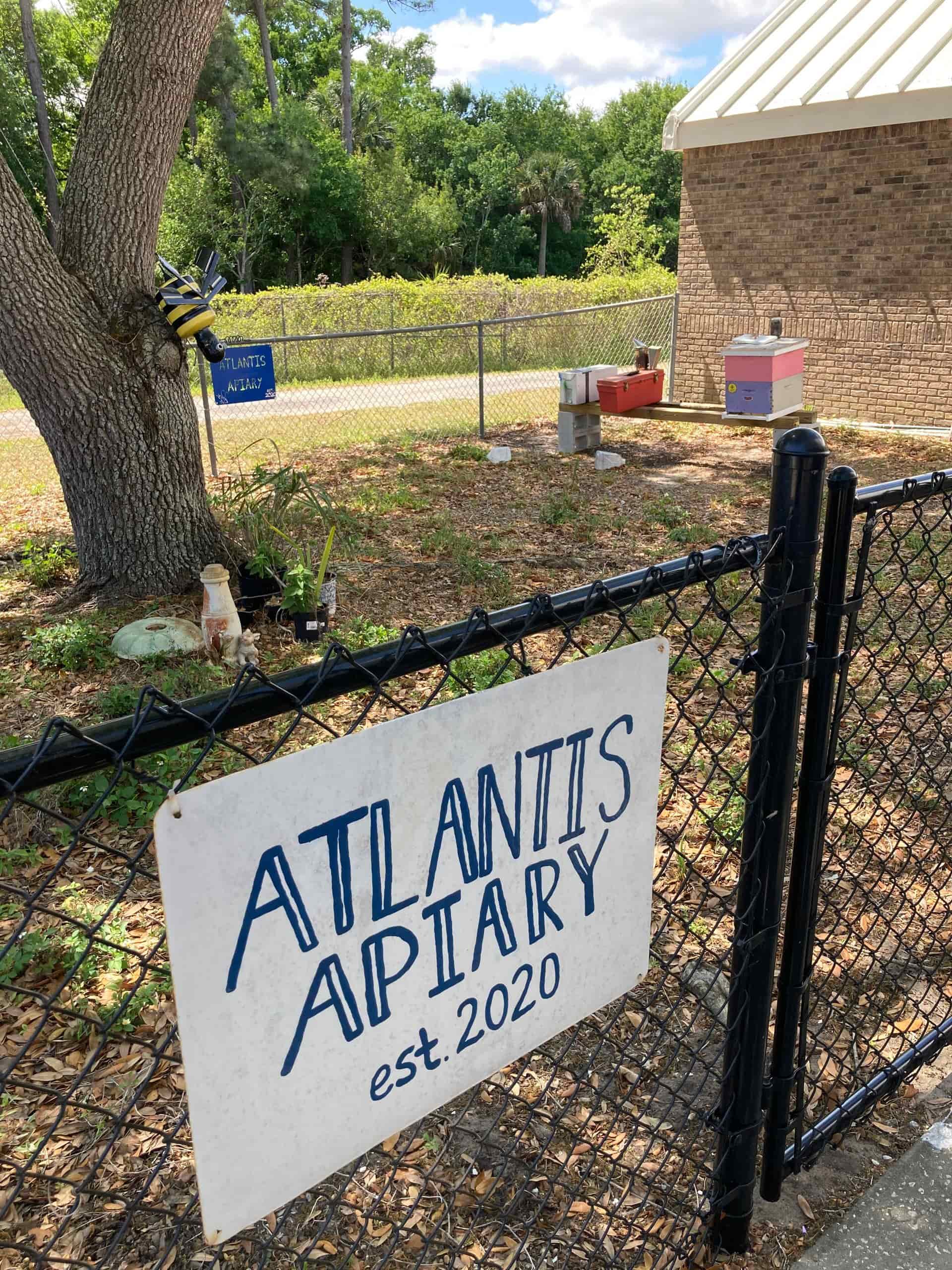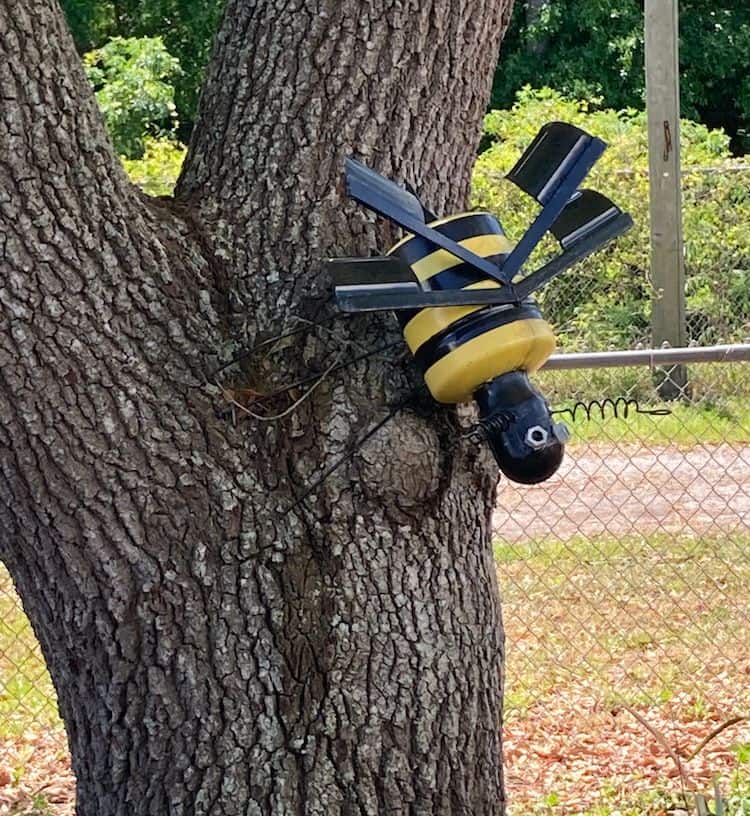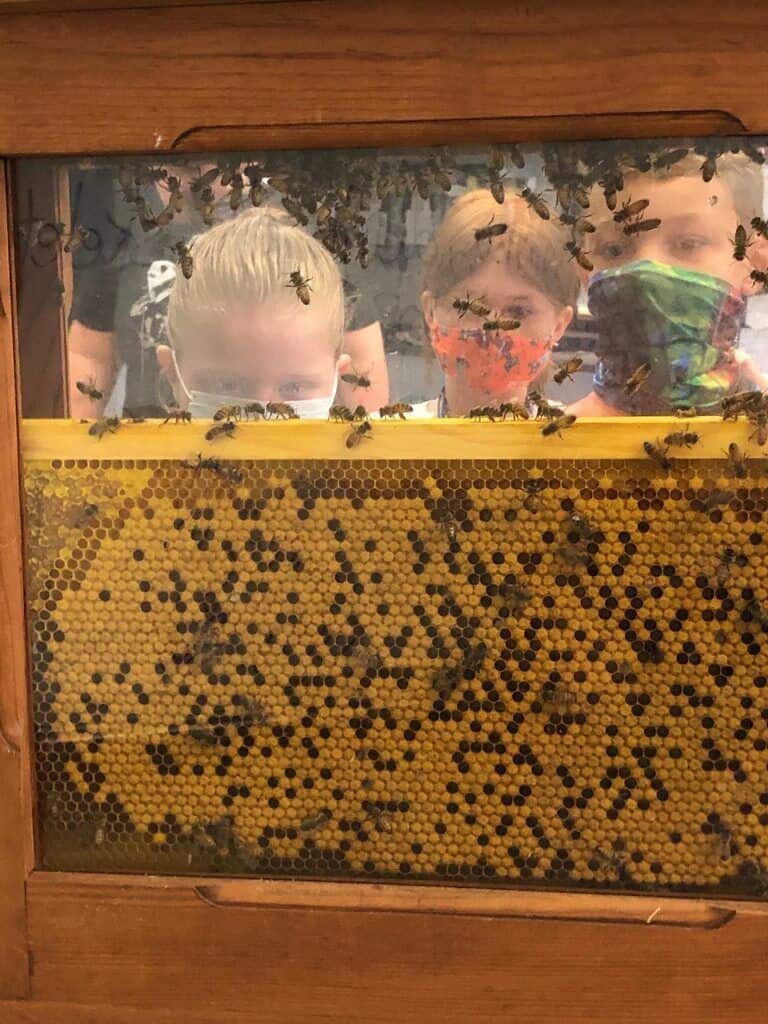“Something that I did not expect to do with this program is to inspire so many people to begin beekeeping.”
During the pandemic, Atlantis Elementary School, a 2020 Bee Grant recipient, was able to establish an educational beehive on-campus, grow community support and inspire families to start beekeeping at home. Here’s how they did it.
AT A GLANCE
Location: Cocoa, Florida
Year bee program was established: 2020
Number of hives: 1
Founded and managed by: School Officer Deputy Anthony Genova, who is also a beekeeper
Goals: To increase awareness about the importance of honey bees; to educate the students about the benefit of having a symbiotic relationship with honey bees; and to share a love for beekeeping.

GETTING STARTED
Among all the work Deputy Genova undertook before establishing the hives and launching the program, there were three key steps that had to be addressed: placement of the hives; accounting; and educating the staff and students.
- Location. The location for the hives was the first challenge the school had to solve. Deputy Genova knew the area needed access to storage and water and also needed to be fenced and minimally traveled to be safe. No areas on campus met all of these criteria, so they had to prepare a section of the campus by getting a fence donated and installed by a local fence company.
- Managing funds. The second obstacle was figuring out how funds would be dispersed to support the hive. They initially planned to disseminate the money through the parent teacher organization, but due to Covid-19 restrictions, they amended the plan to have funds go through the school’s bookkeeper.
- Education. Teaching the staff and students that the bees would not indiscriminately sting people was imperative in making sure that fear was not a part of Atlantis’ apiary project. As a result, the staff and families feel quite comfortable on a campus with the managed hives. Deputy Genova encourages aspiring bee grantees to learn as much as possible about beekeeping prior to installing their bees and to make sure that their school’s administration is 100 percent on board with the program explaining, “People are inherently afraid of bees, but once they get over the initial fear, everyone is naturally curious.”
THE SETUP
The school planned on starting with two hives in order to be able to compare them. However, they lost a queen during the winter, so they combined the two hives. As soon as another queen is available, they will split it back into two hives.
Deputy Genova opted for a traditional Langstroth hive, a configuration of stacking rectangular boxes with removable frames for the bees to build comb in. It also allows the school to more easily extract honey.
COMMUNITY SUPPORT
“Managing this program for the Atlantis Apiary has shown me that one of the most beneficial aspects of building a school-based apiary is asking for help. People love that the school is able to do something as important as saving the honey bee — but without asking them, nobody knows what you need.” — Deputy Anthony Genova
Leveraging help and donations from the local community has been critical in establishing the program. In addition to the donated fence, several more companies contributed:
- Building materials — A local branch of a national home improvement chain donated the building materials the school needed to make stands and storage.
- Hives — Bee Life, a local apiary donated one of the hives, and Deputy Genova provided the second hive himself.
- Ongoing support — Deputy Genova forged a partnership between the school and Brevard Backyard Beekeepers, a local nonprofit dedicated to promoting and fostering the science-based, sustainable best management practices for beekeeping. This has proven to be a beneficial partnership because its members are familiar with beekeepers’ needs and are eager to help others learn. The group has invited Deputy Genova to speak to the group on several occasions, and they have donated items such as bee smocks too.

PROGRAM STRENGTHS
Deputy Genova credits to two important factors in the Atlantis Apiary’s ongoing success.
- Support from the school administration. Not only did the school’s administration approve the outdoor hives, they also allow Deputy Genova to bring a two-frame observation hive to classrooms periodically, which allows students to observe the bees up close. In addition, hive inspections are occasionally filmed by the school’s media specialist, and then shared with the student body during morning announcements.
- An on-site beekeeper. Because Deputy Genova is a staff member, caring for the bees — doing inspections, feeding and monitoring for swarming — is convenient. He can more easily work around bad weather too. He also made it a family affair and his father-in-law has greatly contributed to establishing the school’s apiary.
DISCOVERIES
“Something that I did not expect to do with this program is to inspire so many people to begin beekeeping,”
An educational beehive’s success can take many forms. In this case, Atlantis’ bee program is motivating families and teachers to keep bees at home. A parent and a teacher have both bought bees and a second teacher will soon acquire some. Based on the nature of bees in Florida, Deputy Genova hopes to be able to provide splits to new beekeepers to support new beekeepers and decrease costs.
LOOKING AHEAD
As the program evolves, opportunities for creatively evolving the program have emerged.
- Honey. The school is figuring out how make the most of the honey the hive produces. The first extraction was enough to give a small bottle to each staff member. Since then, they have extracted much more. They are exploring if they are allowed to sell honey and studying best practices. Funds generated from honey sales would help sustain the bee program.
- Beekeeping club. Once Covid-19 restrictions have been lifted, Deputy Genova hopes to start a beekeeping club, which could allow for more student engagement and ownership and help establish a pollinator garden in the enclosed bee area.
More Bee Success Stories
Rollins Place Elementary School
Zachary, LA
Orange County Coastkeeper Garden
Orange County, CA
Greensboro Science Center
Greensboro, NC



